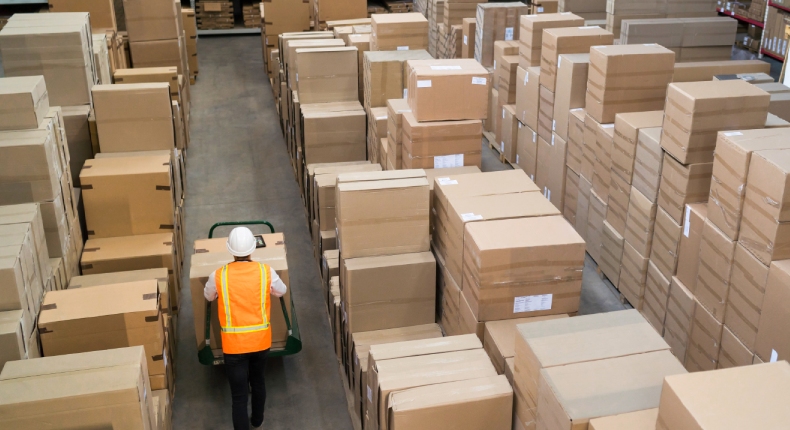
Integral logistics is an increasingly relevant concept in today’s business world, especially in the textile logistics sector, where productivity and efficient processes are crucial for success. In this article, we delve into what integral logistics entails, its main objective, and the numerous benefits it offers to textile companies.
Índice de contenidos
ToggleWhat is integral logistics
Integral logistics essentially encompasses the coordinated and enhanced management of all processes related to a company’s supply chain, from raw material acquisition to final product delivery to the customer.
This comprehensive approach involves integrating all logistics activities, including storage, transportation, handling of goods, inventory management, and distribution, aiming to achieve a smooth and efficient supply chain.
What is the objective of integral logistics
The main objective of integral logistics is to maximize business performance and minimize costs across the entire supply chain while ensuring customer satisfaction and enhancing the company’s competitiveness in the market.
By integrating and coordinating all logistical processes collectively, integral logistics aims to improve the flow of products and associated information, thereby reducing lead times, inventory levels, and costs.
What are the advantages of integral logistics
Implementing an integral logistics approach can provide significant benefits for textile companies:
Increased operational performance
By coordinating and improving all logistical processes, from acquisition to final customer delivery, integral logistics enables greater productivity at all levels of the supply chain. It essentially allows for reduced lead times, better resource utilization, and enhanced responsiveness to market demands.
Precise inventory management
Integrating all processes involved in the production and distribution cycle, integral logistics facilitated by a logistics services company allows for better inventory management.
This integration provides a comprehensive view of stocks, helping to reduce excessive inventory levels and mitigate the risk of obsolescence, while ensuring products are available when needed.
Reduction in cycle times
By eliminating bottlenecks and improving workflow, integral logistics can significantly reduce cycle times, thus becoming one of the ways to enhance the supply chain.
This means that products can move more quickly from the point of origin to the point of consumption, enabling the company to respond more swiftly to market demands and increase its adaptability.
Improved service quality
By coordinating all aspects of the supply chain, from production planning to customer delivery, integral logistics helps ensure greater consistency and reliability in service. This translates into a more satisfying customer experience, with timely deliveries, high-quality products, and exceptional customer service.
Lower storage costs
By optimizing product flow along the supply chain, integral logistics can reduce costs associated with storage and inventory management.
It contributes to reducing warehouse rental costs, better utilization of storage space, and the implementation of more effective storage practices, such as vertical shelving or automated inventory management systems.
Enhanced competitiveness
By optimizing the supply chain and improving operational efficiency, integral logistics can help textile companies position themselves better in the market and gain a competitive advantage.
By reducing delivery times and consistently offering high-quality products, companies can attract customer attention and differentiate themselves from competitors.
Moreover, with a more agile and adaptable supply chain, companies can respond more effectively to changing market conditions and customer demands, allowing them to remain relevant and competitive in the long run.
In conclusion, integral logistics is a fundamental strategy for textile companies seeking to improve performance, reduce costs, and increase customer satisfaction.
Integral logistics offers multiple benefits for textile companies. By adopting a comprehensive approach to supply chain management, companies can maximize their growth and long-term success potential.




